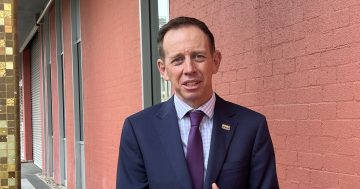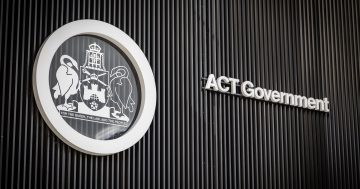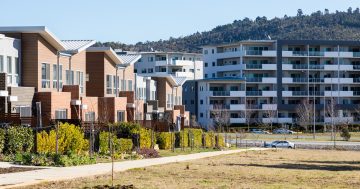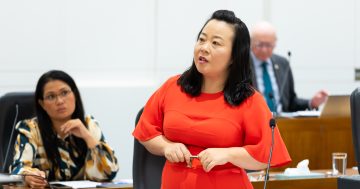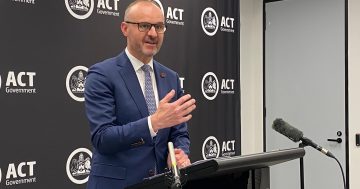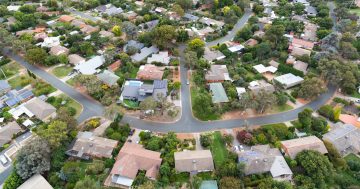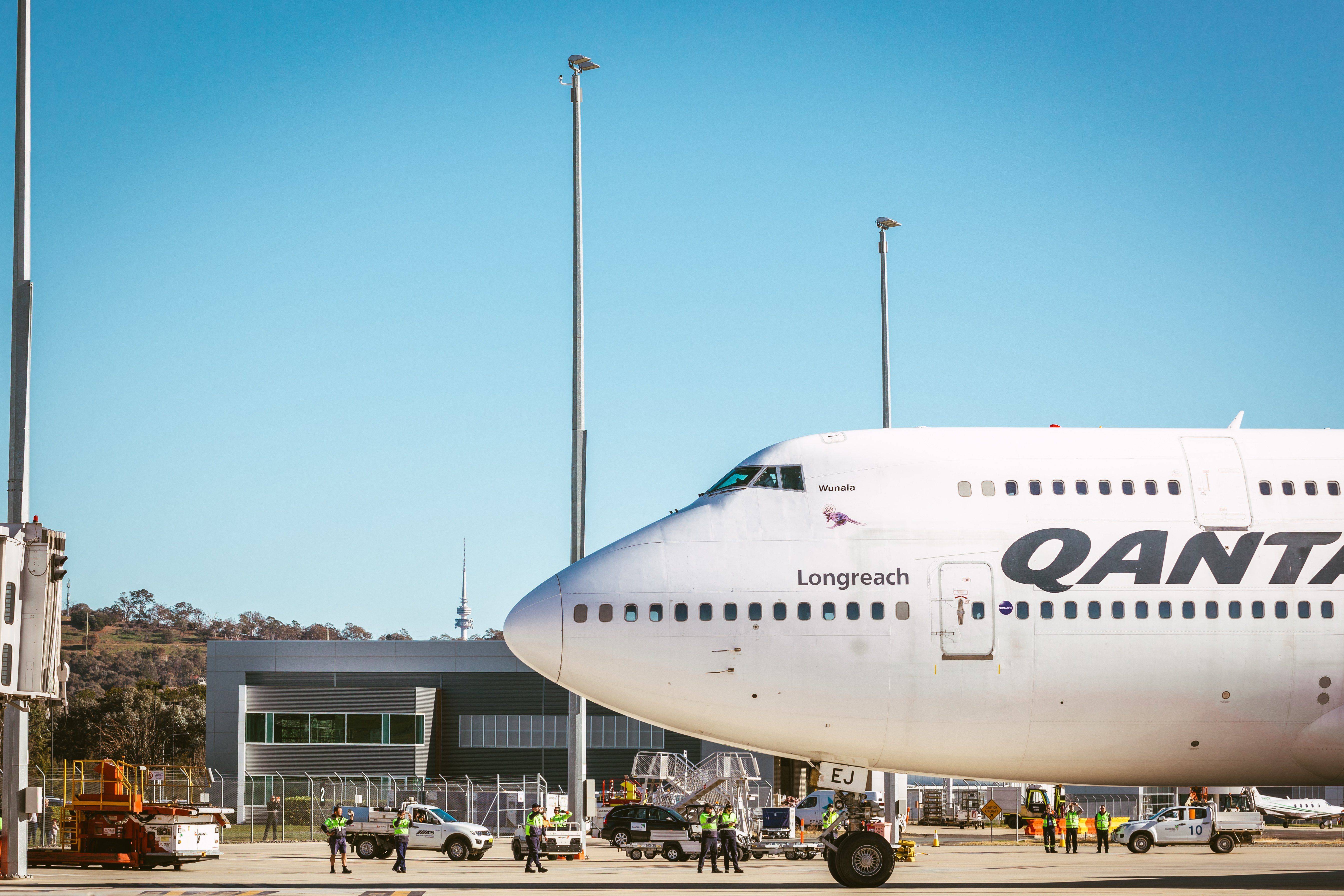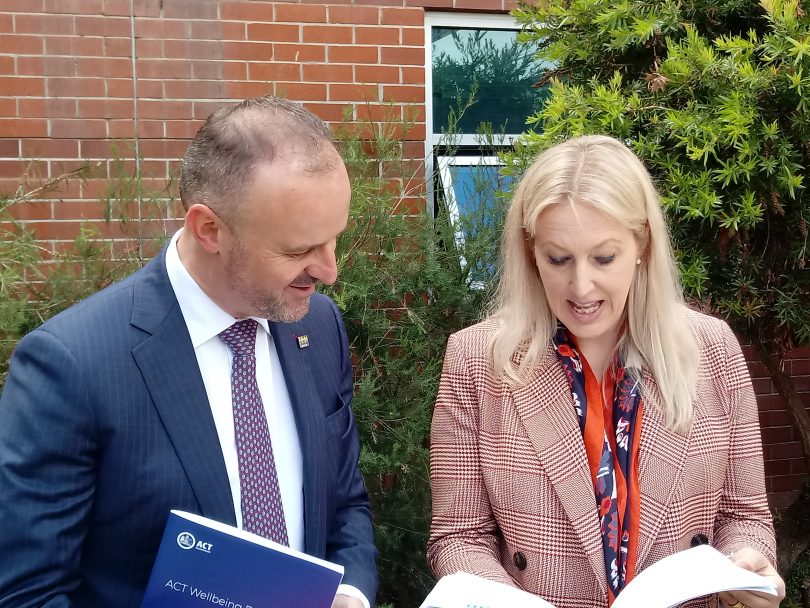
Chief Minister Andrew Barr and ACTCOSS CEO Emma Campbell at the launch of the Wellbeing Framework. Photo: Ian Bushnell.
Economics can be perverse. Just look at how disasters can be good for growth or how the numbers can say an economy is booming amid low wages and declining quality of life, or how a mine or industrial plant will be deemed great for the country despite the environmental damage it may wreak.
That’s the premise behind the ACT’s new Wellness Framework – that we need a more beautiful set of numbers to provide a rounded view for setting sustainable economic and social policy, beyond the triple bottom line the government already employs (meaning social, environmental and economic factors inform policy development).
New Zealand is a world leader in this area and other countries are heading down the same path. In Australia, the ACT is now the trendsetter, although this year’s October election may have forced the Government’s hand.
There is also the growing view that it will be accountants and their data who will save the world, exemplified in books such as Six Capitals by Jane Gleeson-White and The Chief Value Officer, Accountants Can Save the Planet by Mervyn King.
It’s a far cry from Net Operating Balances, and the hope is that what is actually happening for people on the ground will become more significant than whether we are back in black or not.
Of course, this is bread and butter for social and environmental activists who have argued for years that the real costs of doing business were being discounted and that governments have been fixated on the wrong numbers.
But Mr Barr has sounded a warning that using a Wellness Framework and its wellbeing indicators won’t mean it will be all harmony and light.
“Not every policy decision can deliver every possible policy outcome that you want,” he says.
Actually, it will only crystalise the lines of engagement when ministers and agencies go head to toe over spending and policy priorities, although Mr Barr hopes these competing priorities can be more easily balanced.
And from the ACT Council of Social Services, which had input into the Framework, came the warning that it intends to use it to hold the government to account.
The potential is there for the Framework to become a rod for any government’s back and limit its options and maneuverability, which may be one of the reasons why the Canberra Liberals’ dismissed the idea as just a feel-good exercise.
Just as likely is that the whole concept is anathema to a political party committed to small government and the notion that Andrew Barr is a social engineer.
Be that as it may, in a world of increasing inequality, under siege from climate change, blighted by bushfires and now held to ransom by a random virus it makes sense to take a panoramic view and change up the numbers.
Especially when, as Mr Barr says, technology is our friend when it comes to collecting fresh data and crunching it to come up with different narratives and answers to intractable problems.
At least, the Liberals and Labor are both agreed on one thing – it’s outcomes that matter.
Mr Barr sees better service delivery, more targeted policies and less of those perverse results that can hide a jurisdiction’s underperformance, dark flaws and soft underbelly.
The problem for Labor is that while Mr Barr says the Framework has been a couple of years in the making, community consultation for its wellbeing indicators only began last July, and with the Budget in June and the election set for October, the time frame for getting it up and running has been cramped and it may be undercooked.
Word has it also that there was plenty of argie bargie over what should be included in the Framework, particularly from the arts sector, which feared being sidelined.
But overall, anything that broadens a government’s view and takes into account real needs and costs can’t be a bad thing. The proof will be in how successfully the government can embed the Framework, stick to it and what impact it has on Budgets, policies and priorities.
Mr Barr will make a virtue of it come election time, and in a progressive electorate like the ACT, the Liberals may rue their outright rejection of the idea.
Maybe the number crunchers can save the world.












